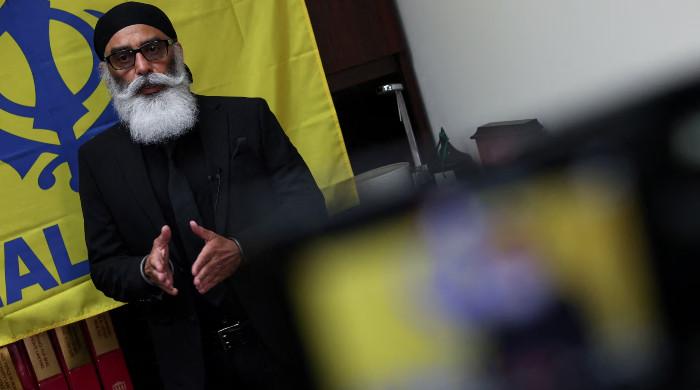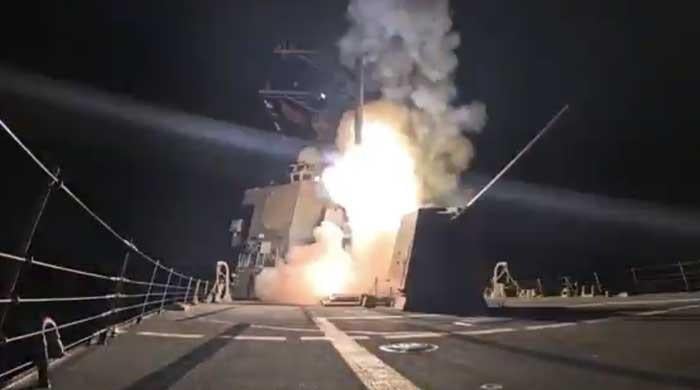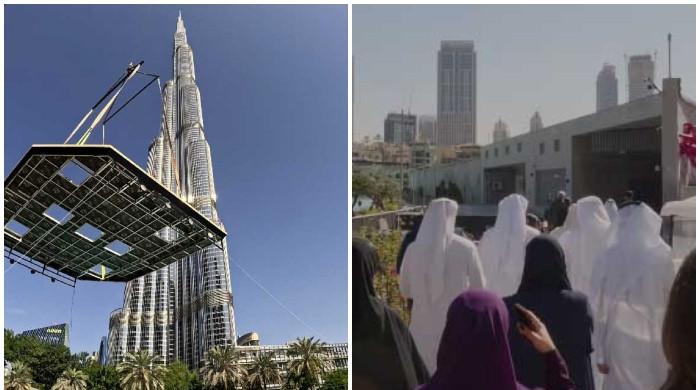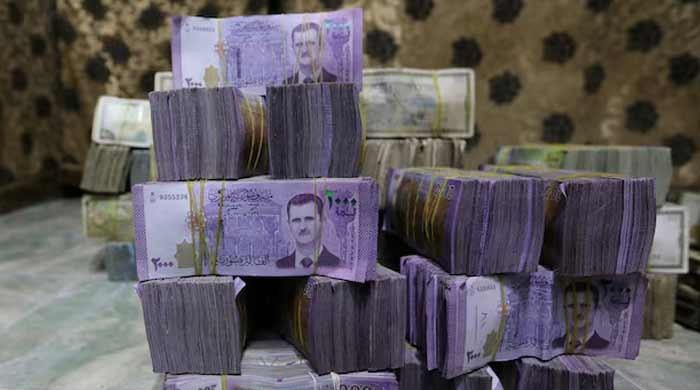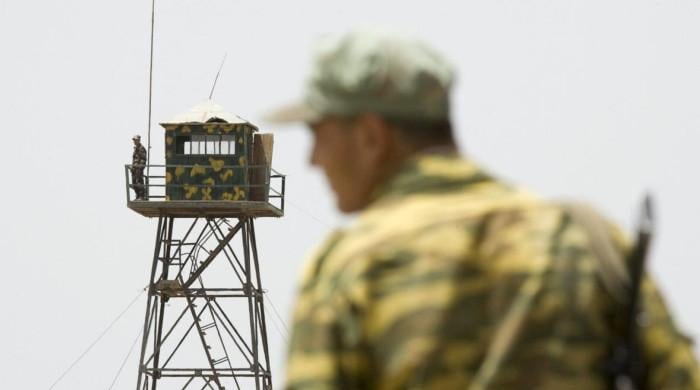Three dead as Yemeni rebels hit Abu Dhabi in 'warning' shot
Yemen's Huthi rebels have accepted responsibility for Monday's attacks in Abu Dhabi that triggered a fuel tank blast killing three people
January 18, 2022
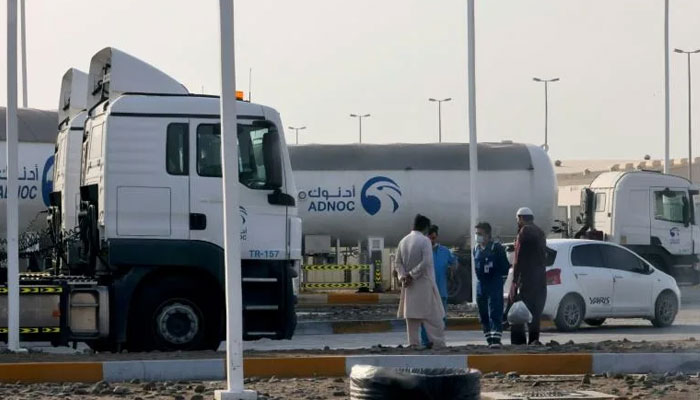
- Yemen's Huthi rebels have accepted responsibility for the attacks in Abu Dhabi that claimed the lives of at least three people including a Pakistani national.
- Huthis said the military action in Abu Dhabi was a warning shot. They warned the UAE to stop its hostility towards Yemen, otherwise, it will not be able to withstand the coming strike in future.
- The Western powers condemned the attacks inside the UAE.
ABU DHABI: Yemen's Huthi rebels claimed attacks in Abu Dhabi triggered a fuel tank blast killing three people Monday, and warned civilians and foreign firms in the UAE to avoid "vital installations".
The United Arab Emirates is part of a Saudi-led military coalition that supports Yemen's government against the Iran-backed Huthis, and the coalition launched retaliatory raids against Yemen's rebel-held capital Sanaa late Monday, without any immediate reports of casualties.
The Huthis have repeatedly carried out cross-border drone attacks against Saudi Arabia, but this is the first deadly assault acknowledged by the UAE inside its borders and claimed by the Yemeni insurgents, who said they had fired ballistic missiles and deployed armed drones.
Abdul Ilah Hajar, adviser to the president of the Huthis' Supreme Political Council in Sanaa, said the military operation in Abu Dhabi was a warning shot.
"We sent them a clear warning message by hitting places that are not of great strategic importance," he told AFP.
"But it is a warning if the UAE continues its hostility to Yemen, it will not be able in the future to withstand the coming strikes."
The US vowed to hold the Huthis "accountable", while Britain, France and Gulf powers all likewise strongly condemned the attacks in the UAE.
- Sanaa strikes -
Two Indians and a Pakistani working for oil giant ADNOC died as three petrol tanks exploded near a storage facility, while a fire also ignited in a construction area at Abu Dhabi airport in the heart of the UAE, a renowned safe haven in the volatile Middle East.
Police said "small flying objects, possibly belonging to drones" were found at both sites.
"We condemn the Huthi terrorist militia's targeting of civilian areas and facilities on UAE soil today... this sinful targeting will not go unpunished," UAE Foreign Minister Abdullah bin Zayed Al-Nahyan said in a statement, as his ministry described the attack as a "heinous criminal escalation".
Huthi military spokesman Yahya Saree said that the insurgents had "carried out... a successful military operation" against "important and sensitive Emirati sites" using both ballistic missiles and drones.
The Huthis warned civilians and foreign firms in the UAE to avoid "vital installations".
Late Monday, the official Saudi Press Agency reported that the coalition had launched retaliatory air strikes against Yemen's rebel-held capital Sanaa. The Huthis' Al-Masirah TV channel confirmed those raids.
The escalation follows a surge in fighting in Yemen, including advances by UAE-trained troops.
The rebels have previously threatened to target Abu Dhabi and Dubai, the gleaming crown jewels of the UAE, which last year opened its first nuclear power plant.
- Western condemnation -
US National Security Advisor Jake Sullivan pledged that Washington will "work with the UAE and international partners to hold" the Huthis accountable, while French Foreign Minister Jean-Yves Le Drian said the rebels' move threatened the security of both the UAE and the wider region.
British Foreign Secretary Liz Truss said she condemned "in the strongest terms" the Huthis' "terrorist attacks" -- terminology also used in condemnations by Saudi Arabia, Bahrain, Qatar and the Organisation of Islamic Cooperation.
Israel said it also stood with the UAE.
"We call on the international community to strongly condemn such attacks and to act immediately so that Iran and its proxies will not have the tools to continue to undermine regional security and harm innocent people," Foreign Minister Yair Lapid said.
The incident comes two weeks after the rebels hijacked the UAE-flagged Rwabee, and released footage purporting to show military equipment on board.
The UAE said the Rwabee, whose 11 crew are now hostages, was a "civilian cargo vessel" and called the hijacking a "dangerous escalation" in the busy Red Sea shipping route.
The rebels later rejected a UN Security Council demand for the ship's immediate release, saying it was "not carrying... toys for children but weapons for extremists".
Yemen's conflict has been a catastrophe for millions of its citizens who have fled their homes, with many on the brink of famine, in what the UN calls the world's worst humanitarian crisis.
The UN has estimated the war killed 377,000 people by the end of 2021, both directly and indirectly through hunger and disease.
Yemen's civil war began in 2014 when the Huthis seized the capital Sanaa, prompting Saudi-led forces to intervene to prop up the government the following year.
The pro-government Giants Brigade troops, backed by the Saudis and UAE, recently delivered a significant blow to the rebels by recapturing three districts in Shabwa governorate.
The clashes were part of an upswing in violence in the shattered country, where the war is being fought on several fronts.




